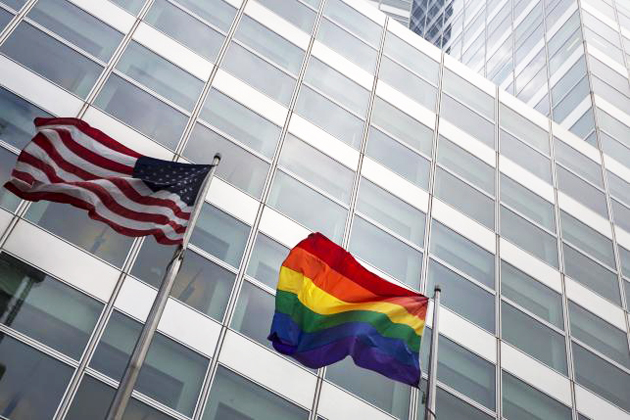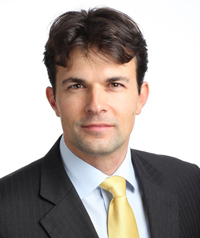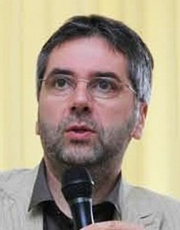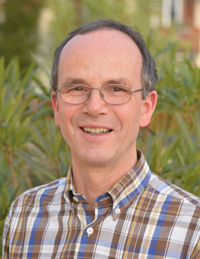How do European evangelicals see USA’s ‘gay marriage’ debate?
Marc Jost (SEA), Thomas Bucher (EEA) and Clément Diedrichs (CNEF) share their opinions. Accepting democratic majorities does not mean to renounce to freedom of speech.
BRUSSELS · 02 JULY 2015 · 15:51 CET

The rainbow flag covering emblematic buildings like the White House, special filters for profile pictures on Facebook, newspapers changing their logo to support the LGBT community, and many evangelical leaders in the USA voicing strong reactions.
The decision of the Supreme Court last week stirred a massive debate.
Meanwhile, in Europe, evangelicals see the debate happening in the USA from a distance. Here, several countries of the European Union passed laws in the past to institutionalise same-sex unions, and even Protestant churches have changed their mind.
Two recent examples of this shift inside liberal European Protestantism are the decision of the French Reformed and Lutheran churches to bless ‘gay marriages’, and the Belgian United Protestant Church, which just voted to accept homosexual pastors. Evangelicals in both countries reacted defending a biblical view of marriage (see France and Belgium).
Bearing all this in mind, can Europeans offer a different perspective on the debate in the USA?
Evangelical Focus contacted leaders in Switzerland, France and on a European level, to see what they had to say.
SWITZERLAND: “PEOPLE IN A PLURALISTIC STATE DO NOT FOLLOW BIBLICAL THEOLOGY“
“To be honest, I am not sure what evangelicals in the USA could learn from us. In Europe we have not really accomplishedcompetent and convincing way to respond to the questions and to explain why it is legitimate to give a special status to marriage between man and woman, compared to other unions”, says Marc Jost, politician and secretary general of the Swiss Evangelical Alliance.

Jost sees a difference between the acceptance of homosexuality on a state-level and the blessing of homosexual unions inside the churches. “Most people in a pluralistic State will not follow a way of thinking which is shaped by biblical theology. If there are not enough reasons presented to think otherwise, most people will not see reasons to privilege heterosexual marriages above homosexual unions.”
But “evangelical churches should hopefully orientate themselves to biblical ethics. So the Evangelical Alliance has to argument theologically and show that the legitimate place for sexuality is marriage between a man and a woman. And the Church does the right thing when it blesses this type of union, and not others.”
FRANCE: “WE ACCEPT THE LAWS BECAUSE WE ACCEPT DEMOCRACY”
Clément Diedrichs, director of CNEF (National Council of Evangelicals of France) has a similar view: “I am not sure we are able to help evangelicals in the USA, our culture is so different”, he comments.

Diedrichs thinks frontal confrontation against the state administration is not a solution. “We don’t want to be known as Christians fighting with the government whenever laws are not in accordance with the Bible. We have to accept the laws because we accepted to be in a democracy.”
Christians should work for just laws, “this is what we did in France 2 years ago. But afterwards, we need to go on being Christians in our society. If we keep complaining we are not 'good news' people.”
Dierdrichs refers to the book of Ecclesiastes, a book in the Bible: “There is a moment to fight, and a moment to stop fighting and jut being a Christian. But the Lord never said we will feel at ease in society, so we have to accept it.”
Of course Christians should have “lawyers, competent people, fighting for freedom of conscience and freedom of speech, this is a big subject for us.”
PROTESTANTS NOT RESPECTING SCRIPTURE, A “DISASTER”
Commenting on the shift on the ‘gay marriage’ debate inside Protestant churches, the CNEF has a clear position: “The government is ‘laique’, and they take decisions with no religious background. They can’t say: 'we take a decision because Christians are asking for something'. But with the EPUB [an example of ‘gay marriage’ inside a Protestante Church] it is different. They are known as brothers in Christ, so it is a totally different situation. When a Christian denomination is not respecting the Scriptures, this affects the image of all Christians, it becomes a disaster for our image as Protestants in the French world.”
This is the reason why the CNEF has been much more vocal when marriage has been redefined inside the churches.
EUROPEAN ALLIANCE: “BOTH SIDES NEED TO RESPECT SEPARATION OF CHURCH AND STATE”

But this does not mean one should just “give up ‘rights’”. Evangelicals “need to keep addressing the issue and make people aware of what it actually means. The difficulties start when the State starts to meddle in the religious sphere” continues Bucher.
“The separation of State and Church has to be respected from both sides. It has a lot to do with freedom of conscience, thought, belief and religion. It is worrying if having a different opinion on sexuality is being criminalised (hate speech, accusations of homophobia etc.)”
DIALOGUE TO GUARANTEE FREEDOM OF SPEECH
Where and how should Christians defend their biblical position? “In a democracy the majority makes the legislation. The State can therefore legally ‘marry’ whoever is permitted to do so”, explains the EEA representative. “However, it should not force churches to do so.”
“Some churches have chosen to apply what the State does. But the State should not interfere in church affairs. Having a dialogue about it is completely different. The Church should raise its voice and make its belief about Christian marriage known without having to fear being persecuted for it”.
“We are also concerned that individuals will have freedom of conscience respected on the issue of same sex marriage. If someone does not want to supply printing, photography, food, etc, for a same sex celebration, they should have the freedom to respectfully decline the work”, Bucher concludes.
Published in: Evangelical Focus - world - How do European evangelicals see USA’s ‘gay marriage’ debate?
